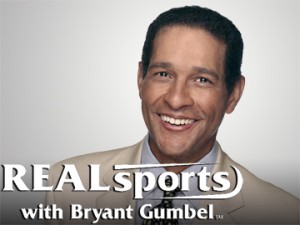 My wife and I were recently watching Real Sports with Bryant Gumbel. Whether or not you are a huge sports fan, it is a tremendous show because of the serious world issues, questions, etc. it addresses, albeit from a sporting angle. One of the stories had to do with the fairly recent usage, umbrage, and even acceptance of the “N” word in the NFL.
My wife and I were recently watching Real Sports with Bryant Gumbel. Whether or not you are a huge sports fan, it is a tremendous show because of the serious world issues, questions, etc. it addresses, albeit from a sporting angle. One of the stories had to do with the fairly recent usage, umbrage, and even acceptance of the “N” word in the NFL.
As a writer, it has always bothered me that I am expected to write “The ‘N’ word”. Not because I do not understand its import, impact, and the very historical nature that makes it, near inarguably, the worst word in English language–but rather because I have always believed that to give it such reverence is part of what gives it power.
Yes, I am white. And I did not grow up in a poor, urban area (both elements in the ongoing conversations in the NFL—some claim that white men who grew up in poorer circumstances, around young black men who use the word “endearingly”, can find themselves with a kind of “exemption” and are allowed to use the word in certain situations).
I reject any usage of the word (or a complete negation of its hold over all of us, which will never happen), other than to talk openly ABOUT the word.
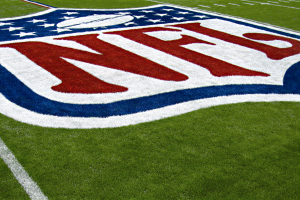 Apparently the NFL agrees with me, and is working a campaign through which ANY use of the word, when documented (taped, heard by officials, alleged, etc.) in reference to another person, will be met with stiff penalties, regardless of context. Rather than simply attacking one use of the word (angry or racist), the NFL is choosing to attack the WORD itself. However, they are attacking its use in conversation and/or argument.
Apparently the NFL agrees with me, and is working a campaign through which ANY use of the word, when documented (taped, heard by officials, alleged, etc.) in reference to another person, will be met with stiff penalties, regardless of context. Rather than simply attacking one use of the word (angry or racist), the NFL is choosing to attack the WORD itself. However, they are attacking its use in conversation and/or argument.
As a writer, I also oppose banning the word. I also reject the idea that me writing about the word, or about the issues, is somehow less-relevant because I am not black. And the reverse happens (reporters being given assignments because of their ethnicity). More than most of us would like to think. But the articles I have read in the NY Times, Sports Illustrated, and other prominent journalism sources, have, in large part, been assigned to black writers—I believe for this very reason.
My theory is that any time we make race part of the issue, it is US making race part of the issue. It shouldn’t be. Not unless race IS the issue.
I realize this is a racist riddle wrapped in an unsolvable conundrum, but that does not change the facts. Our government refuses to negotiate with terrorists—even when innocent, American lives are at stake—because of the message it sends; news stations will intentionally stop giving coverage to a particular criminal or issue so as not to “give it more exposure”, thus making it of more import than it deserves.
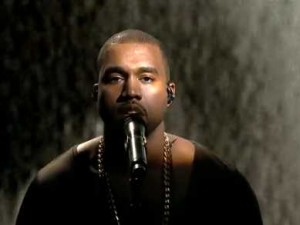 Why can’t we collectively agree that the word nigger (and all its variations, including the colloquially “friendly” drop-the-er-add-an-a version that is many times permissible within cultural lines) is defunct, and stop using it altogether? (And yes, I’m talking to YOU, TOO, Kanye West!) Obviously I am not talking about stopping those who would use it anyway, in a racist and derogatory manner. That is for another conversation. This is about people who are not racist, black or white (or any other color, creed, or culture) refusing to give a word so much power in our language.
Why can’t we collectively agree that the word nigger (and all its variations, including the colloquially “friendly” drop-the-er-add-an-a version that is many times permissible within cultural lines) is defunct, and stop using it altogether? (And yes, I’m talking to YOU, TOO, Kanye West!) Obviously I am not talking about stopping those who would use it anyway, in a racist and derogatory manner. That is for another conversation. This is about people who are not racist, black or white (or any other color, creed, or culture) refusing to give a word so much power in our language.
 If someone writes an article about the word, then they should be able to say the word in the context of the article. However, as a society, we’ve given this singular word more power than any other in the history of the English language. Yet somehow we just keep reaffirming its power over us by being EXPECTED to say “the ‘N’ word”, even in journalism. In fact, this Sports Illustrated/Monday Morning Quarterback article, written by Robert Klemko—who is black—apparently warranted the following comment by MMQB‘s editor-in-chief, Peter King (who is white), before it could be read:
If someone writes an article about the word, then they should be able to say the word in the context of the article. However, as a society, we’ve given this singular word more power than any other in the history of the English language. Yet somehow we just keep reaffirming its power over us by being EXPECTED to say “the ‘N’ word”, even in journalism. In fact, this Sports Illustrated/Monday Morning Quarterback article, written by Robert Klemko—who is black—apparently warranted the following comment by MMQB‘s editor-in-chief, Peter King (who is white), before it could be read:
In normal reporting, we would not spell out such offensive words, but because of Klemko’s subject matter we decided to use them in full, feeling it would be distracting or confusing to do otherwise, and that an honest discussion requires that we talk about these terms in the open. I apologize in advance to those who are offended by their use.
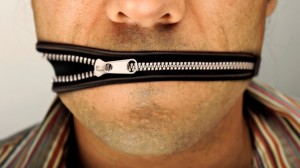 I get it. I’m not saying King’s intro (because of our present conditions) was unwarranted or strange for our times. Just the opposite. I am a writer, however, who cringes at King’s statement.
I get it. I’m not saying King’s intro (because of our present conditions) was unwarranted or strange for our times. Just the opposite. I am a writer, however, who cringes at King’s statement.
“In normal reporting, we would not spell out…?”
WTFO?
(See, I didn’t spell that out either.)
Whatever side you find yourself falling on this issue, it’s pretty hard to argue that Peter King’s pre-comments didn’t make the focus more intense AND didn’t infuse the words with far more power than they might have had simply running the article, as written.
I’m white. I get that, too. I am not supposed to write about such things.
But I am also a writer. Not a white writer. Just a writer. And because of that fact, words are more important to me than non-writers, no matter their color. So I claim the right (and responsibility) to say something when I believe there is an attack on a word, whether or not I like the word. (And, in fact, I hate the word.)
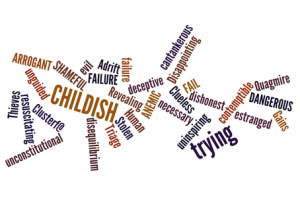 No, it’s not “just a word”. People that make that argument aren’t thinking clearly either. It absolutely carries with it a power all its own. But that doesn’t justify anyone giving it more gravitas.
No, it’s not “just a word”. People that make that argument aren’t thinking clearly either. It absolutely carries with it a power all its own. But that doesn’t justify anyone giving it more gravitas.
MORE sting.
MORE hurt.
MORE hate.
It’s like giving in to a toddler’s tantrum. What message do we send by giving in to the ugliness and wickedness of the word instead of simply ignoring it?
As impossible as it might seem (and be), if one day we were ALL able to just see the word “nigger” as another collection of letters that form a word, the printed (and spoken) world of words would be all the better for it.
That’s all I am saying.
And unlike Peter King, I will not apologize for using the word. Yes, it’s a horrible word.
But the word isn’t deserving of such attention.
~~~~~~~~~~~~~~~~~~~~~~~~~~~~~~~~~~
The blank page is dead…long live the blank page.
~~~~~~~~~~~~~~~~~~~~~~~~~~~~~~~~~~



I would disagree with you, Rob. “Nigger” is just a word. Unfortunately, too many have forgotten the old schoolyard chant, “Sticks and stones may break my bones/But words will never hurt me.”
Words only have the power that you choose to give them. I try to teach that to those around me. For example: A child I was keeping an eye on (not technically babysitting), was being harassed by a bigger kid who happened to be raised by a racist. Bigger kid kept calling him a nigger, and saying his “Mama is a nigger lover.” He used to get so mad, and want to fight him, until this:
Me: That kid who keeps calling you names? He’s complimenting you.
Him: (weird look) What the fuck?!
Me: Think about it. He’s taking time out of his day, time he’ll never get back, to think about you. He’s saying you are that important to him.
Him: What do you mean?
Me: We have a limited time each day with which to do things. Things that are important to us. Since he’s taking time to throw this trite, and lame wanna-be insult your way, he’s saying you are important to him. So, rather than getting mad, mentally thank him.
Him: I never thought of it that way.
Me: Not many do. Now, you have an advantage. You can teach this to others.
Does that make any sense to you, Rob?
Of course it makes sense—three-quarters of my blog is about US giving power to the word! The only thing you are disagreeing with is semantics. Is it “a word” or not? I only acquiesced to the fact that of all the words in the English language, that one does come with the most historical baggage (hate, derisiveness, power), and I get why just the sight of it makes people cringe. My point, however, is exactly the one you make—I only suggest that “we aren’t there yet” and that’s why it is still “a word”. There’s no denying that. Even Caleb, another of my close writer friends like you, below, makes the argument that we are making yet he writes, specifically, “the ‘N’ word” four or five times. He can’t type it. Most people can’t, or won’t. Peter King, one of the most respected journalists in the world (and someone I admire deeply), APOLOGIZES beforehand for one of his reporters typing it. That is why I say it’s “a word”…because even people who don’t want it to be, and who say we should not give it power, give it power by showing it such reverence (albeit appropriate, distasteful reverence).
BTW, your story with the young boy is EXCELLENT and spot on point. I love the creativity of showing him that they are spending their time on him and that makes him special! Touché.
The “N” word is just a word. But nothing has more power than a word, written or spoken. It is, as you say, a terrible word, one that makes me cringe when someone utters it. Yet, as writers, one of our obligations is to reflect a culture, a period of time, or the bigotry of a region. The “N” word is often the centerpiece of that culture, time, or bigotry, as bad now as it was before the 1960s. And, believe me, the word was used then as it is used now in the North, as well as the South. To eliminate the word in our novels would be like writing a story set in Alaska and not mentioning the snow.
I agree with you almost wholeheartedly. But your very post proves it IS “a word”! You avoided typing it at every juncture where you would normally just type a word. I say that gives the word power. You are showing (appropriate, negative) reverence by not being willing to just type it out like any other word. I believe it is that unwillingness (subconscious or not), and Peter King’s belief that he had to apologize to the readers for his reporter using the word in the article about the word that gives it more import, makes it stand out, and, yes, infuses it with a power none of us want it to have.
Thanks for weighing in, my good friend. I’ve missed seeing you around my blog. Come to think of it, I haven’t been around my blog. 😉
I so appreciate you covering this topic. I’ve written before on my own blog about what I refer to as “the Voldemort effect”, which is to say, lending power to words by saying instead “He who shall not be named” {but which, through alternate choice of words, was still named}.
Like you, as a writer, I hate the idea that one word has more power than others. I want to write freely, without being barred from voicing my opinion. I don’t want to be trapped into avoiding certain terms.
And yet… Yes, the word “nigger” is a tough one. As the mother of mixed-race children, I am particularly receptive to racial slurs. My son, a half-Hispanic 20yo, hangs out with multiple races at the gym. Different colored young men from all different backgrounds assist each other with weights and toss this name back and forth across the floor. My son’s dark complexion has lent him an “in” and he uses nigger / nigga freely. I hate it. I can’t stand it. And I tell him he best check himself or he will get his ass beat since he isn’t black, and the wrong person might get offended. He just scoffs, says I don’t understand.
And he’s right. I’m a woman. I don’t “get” what it’s like to have that male comradery which allows men to slap each other on the ass and call each other nasty names.
However, as a woman — a minority in the sense that equal rights are still long in coming {an argument for another day, for those who might protest this observation} — I do understand owning insults. For example, over the years, women have taken the insults “bitch” and “cunt” and turned them around. They used to be hurtful terms intended to belittle females {and likely still do intend such, when uttered by male cretins}, but many of us now use them as forces of power. There is something to be said for stealing a word’s oppressive nature right out of the wielder’s hand.
Even so, “bitch” is a far cry from “nigger”. I don’t cringe when I hear the former; I absolutely tremble with outrage over the latter. It pains me even to write it. As a writer, a lover of words, this disturbs me about myself. But that we can discuss it openly, in some forums such as this, at least, gives me hope. Words do have power, absolutely. As you say, they have exactly the amount of power we allow them to have. I guess it would be hypocritical to suggest that words may have the power of good {like, speeches that inspire and motivate, calls to action that stir listeners’ hearts, or fabulous books both current and ancient} by may not also carry the power of evil.
The fact is, anyone can make words move us, whether to tears, laughter, anger, or joy. The problem is not the words themselves, but how we allow them to lead our reactions. All of which is my lengthy way of saying, “Oh man, I totally agree with you on this!”
Well, it may have been a lengthy way of saying it, but it was also necessary, well-written (would expect nothing less), and you brought a great many NEW questions to the table (and I think that is one of the most important parts of civil discourse, discussion, debate, etc.)! Thank you for adding your perspective—I happen to think it brings up even more excellent angles. I mean, your son is walking that thin line. The white NFL player(s), same thing. Some have been given “permission” to use the word in a “friendly” manner. Clearly you and I (and many others, including Bryant Gumbel) believe there should be NO usage of the word, and that to use it even in a “friendly” manner is still to degrade, based on the word’s history of negativity and evil power (my words, not his).
You bring up another interesting point, though. The “stripping” of a word’s negative power by reclaiming it as the one (or ones) toward whom it was originally intended to harm. Many would argue the same thing about the word “nigger” (and yes, I cringe writing it, too, and I honestly understand why we all do—and should, to a point). However, I think the only way to completely defeat a word is to (ultimately) remove its potency. Not through playfully “reclaiming” it, because ultimately that is like the Devil’s Greatest Triumph paradox (convincing the world he didn’t exist). The word retains strength (any word—bitch, for example) as long as people breathe life into it by using it openly, in the way it was intended (i.e. a slur, even if reversed intentionally).
Ironically, I think the quickest way—and perhaps the only way—such horrible, hateful, negative words (nigger being the worst of them), are deconstructed, is if they are only used, in print or broadcast, when it is the WORD that is the focus of said report or piece. In other words, if you’re writing about the history or banning or power of the word “nigger” (or “bitch”, or “redskin”, or “mick”, or “kike”), then simply write the word as appropriate. Don’t overuse it, don’t talk about using it, don’t apologize for using it—just use it as you would a story utilizing any word.
I know. It’s probably never going to be possible. I’m, of course, talking about a theory of “how”, not a reasonable (necessarily workable) solution. Like I said, I myself cringed when writing those words, and likely always will. But the path to success always begins somewhere. Blogs, articles, speeches, unapologetic television commentary, such as Gumbel’s.
The fact remains that WE give words power. That is never going to change. That implies it is only WE who can take the power away.
Will we? Can we?
The campaign will be difficult at best, impossible at worst. How’s that for a whimsical “maybe”?
Thanks again for the great response! 🙂